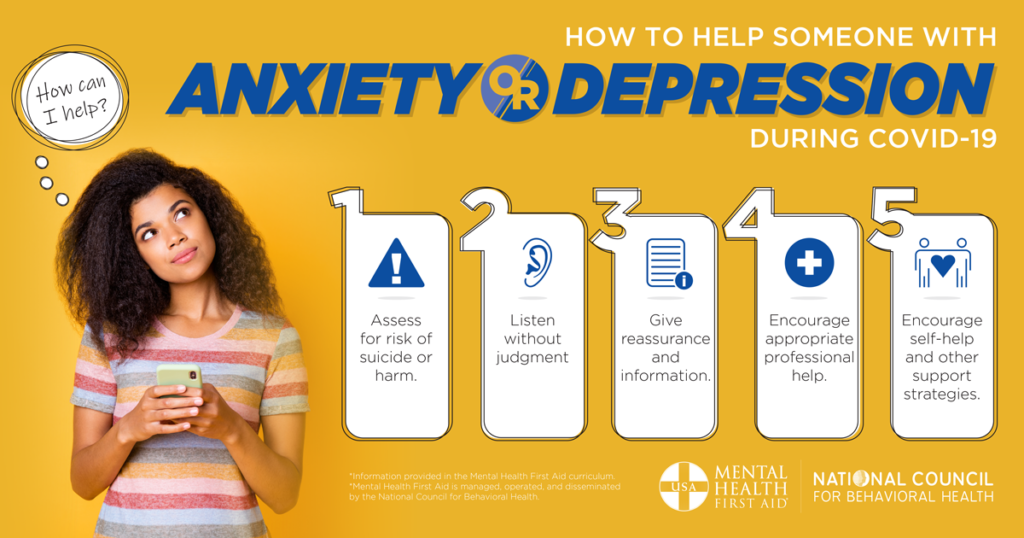If you or someone you care about feels overwhelmed with emotions like sadness, depression or anxiety, or like you want to harm yourself or others call 911.
You can also contact the Substance Abuse and Mental Health Services Administration’s (SAMHSA) Disaster Distress Helpline at 800-985-5990, the National Suicide Prevention Lifeline at 800-273-8255 or text MHFA to 741741 to talk to a Crisis Text Line counselor.
Feeling anxiety or depression is a common reaction in times of uncertainty or when there’s a perception of danger, and the COVID-19 situation certainly qualifies as such a time. This is something new and worrying that we are all facing together.
That’s why we encourage you to use tips from Mental Health First Aid to support those around you who might be feeling overwhelmed, stressed, anxious or depressed. With these tips, you can #BeTheDifference for your loved ones while physical distancing and help them through this challenging time.
Use these tips from the MHFA curriculum to help someone with anxiety or depression during COVID-19:
There are other self-care strategies that can help manage symptoms of anxiety or depression, as well as self-care strategies that can help you manage your own mental health during this time. We encourage you to take a few minutes every day to focus on your mental health needs, connect with loved ones, and find support using technology. Thank you for choosing to #BeTheDifference with Mental Health First Aid.
